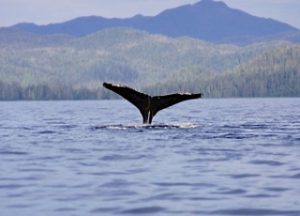VSM/2109/OS/NGO/03
IWMC World Conservation Trust Opening Statement
IWMC World Conservation Trust wishes to express its gratitude to the Chair of the Commission and its appreciation to the Secretary and her Staff for the effectiveness in arranging this Special Meeting under difficult circumstances.
For centuries whaling has been an integral part of cultures all around the world: from the icy waters of the Arctic, via the rocky shores of Japan, to the tropical islands of Indonesia people and whales have interacted in one way or another. Yet with the adoption of the moratorium on commercial whaling this interaction has come under attack. And nowadays even small-scale coastal whaling, which is being carried out by indigenous and non-indigenous communities alike, which serves for food and sustenance is no longer considered necessary. Of course, those that scream the loudest against this legitimate form of livelihoods have never engaged with it or with the people that carry it out.
Only 20 years before the coming into effect of the moratorium, two fundamental human rights instruments were adopted: the International Covenant on Economic, Social and Cultural Rights (ICESCR) and the International Covenant on Civil and Political Rights (ICCPR). These instruments constitute the basis for all contemporary human rights instruments and have been almost universally ratified. When considering whaling for sustenance, three distinct elements come to mind: the right to one’s own culture, the right to employment and the right to food. Already the Preamble of the ICESCR stipulates that “everyone may enjoy his economic, social and cultural rights” while the shared first article of both instruments reads that all peoples have the right to “freely determine their political status and freely pursue their economic, social and cultural development.”
In light of the moratorium on commercial whaling and the creeping expansion of the IWC’s mandate to include also small cetaceans, states opposing even the smallest non-indigenous whale hunt that is legal under national law are in direct breach of the provisions of these instruments. Moreover, whaling is also a form of employment that has come under threat. Why? Because some countries do not ‘like’ it. Yet, it is also these countries that have ratified the Employment Policy Convention by the International Labor Organization of 1964. This convention grants the right to freedom of employment — a right, which can also be found in the ICESCR. Why are coastal communities denied this right?
Lastly, everyone has the right to food — a right that can be found in numerous human rights instruments. Especially in coastal communities, this right is becoming ever more important, given the way overfishing has affected coastal fisheries worldwide. To deny coastal communities to make use of the abundant whale stocks right next to their shores constitutes also a denial of their right to food. Therefore, it is imperative that they can make use of those food sources that are available to them.
In light of the above we conclude that maintaining the moratorium over emotional or moral concerns constitutes a breach of several fundamental human rights. Those rights have been turned into national law by almost all states in the world. By applying these rights to their own citizens, but not considering them relevant for the citizens of other countries does not fall short of being discrimination.
IWMC wishes that the questions of Animal Rights and Sovereign Rights will be given the highest possible priority in all the Commission’s future decisions.
IWMC Switzerland
9 September 2021


